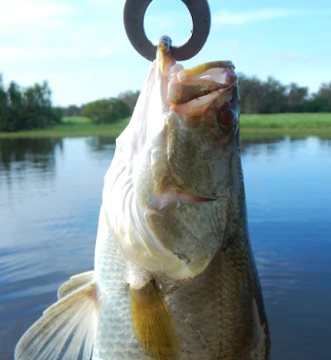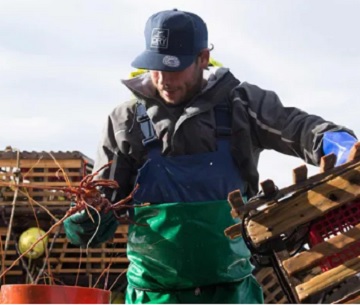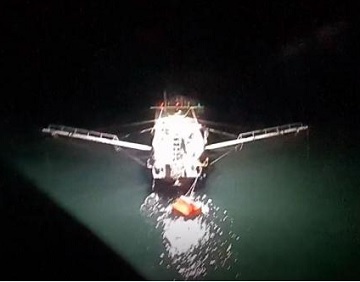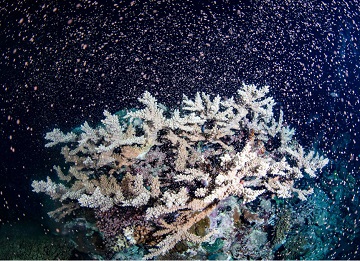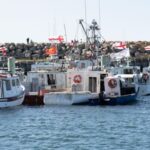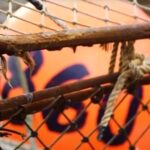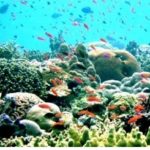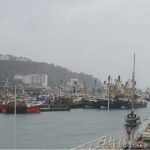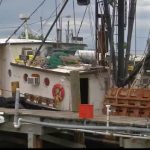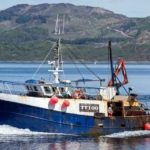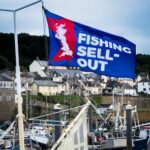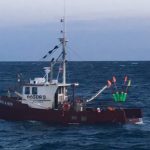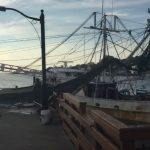Tag Archives: Australia
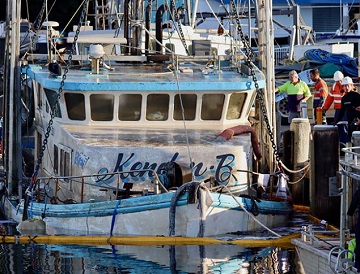
Port Stephens Maritime Community Rallies Around Milanja Family
The maritime and greater community Port Stephens have rallied around the Milanja family as their much-loved fishing trawler and livelihood, the Kendon B, had to be recovered from D’Albora Marina last Tuesday. The vessel sank on its mooring on Friday 19 May which came as a double blow to the Milanja’s as Miro, owner and operator of the Kendon B, has recently been discharged from hospital battling serious health issues. Mark Milanja, eldest son of Miro, has been on hand with his brothers Mitch and Matt assisting local authorities and salvage teams around the clock since the trawler first sank. >click to read< 07:52
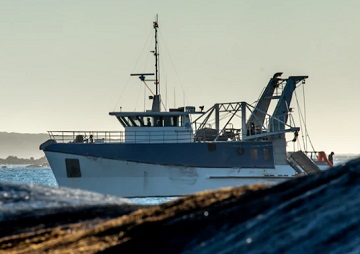
Greek immigrant and pioneering fisherman Kon Paleologoudias’s legacy in Venus Bay and Port Kenny
When Konstantinos Paleologoudias left Greece as a fresh-faced 18-year-old fitter and turner in the 1950s he began an adventure that would help shape two small towns 14,000 kilometres away on South Australia’s west coast. Konstantinos, also known as Kon Paul, established a fish processing factory at Port Kenny and while the size of the prawn boat fleet in Venus Bay has fluctuated, the three remaining licensed boats are all owned by the Paleologoudias family. More than 70 years since Kon emigrated, his feats have been recognised in Venus Bay, with the naming of a large sculpture of a pelican, Pauly. Photos, >click to read< 07:45
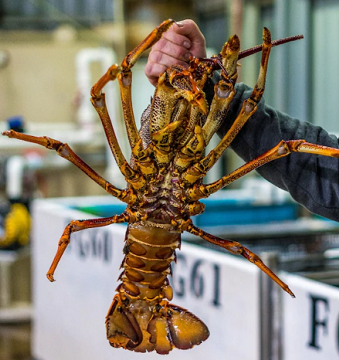
Concerns over fishing industry risk from proposed offshore wind farm in South East SA
Residents in a small South Australian coastal town are concerned a proposed offshore wind farm could impact on the local fishing industry. Off its coast, the Southern Ocean has some of the most productive southern rock lobster waters in the country. Offshore wind developer Blue Float Energy has announced plans to build a 77-turbine wind farm between 8 kilometres and 20km out to sea, which the company says would generate 1.1 gigawatts of clean energy. Fisher and farmer Brodi Milstead said he was not only worried about his industry. “No matter what their studies say, we know it’s going to affect our businesses, our environment, our whales, everything that lives there,” he said. >click to read< 16:02
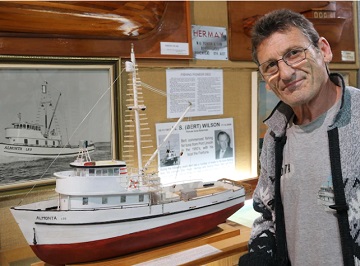
Calls to salvage Port Lincoln’s historic fishing vessel, the Almonta, as it rots on seabed
When a historic Port Lincoln wooden fishing boat sank on its moorings at Snooks Landing more than a year ago, its owner Mario Antolini cried. He watched from the shore 100 metres away, unable to help as 60 years of stories and memories sank to the seabed. Cars of people soon arrived and in his grief Mario saw they too were crying. The Almonta was an early wooden vessel in the local salmon and bluefin tuna fleets of the 1960s. It was a favourite for those who worked on its rich timber deck and netted huge catches of fish from the rolling southern ocean. Photos, video, >click to read< 10:27
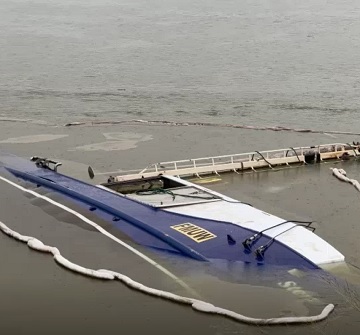
Fears capsized trawler is spilling pollutants into Burnett River
A sunken trawler that has leaked pollutants in Bundaberg’s main river could pose a danger to people’s safety and the environment, a commercial fisherman and environmentalist says. The capsized boat was first noticed in the Burnett River last week and the boat owner has been given until December 9 to move it. Maritime Safety Queensland (MSQ) said it had deployed a floating boom around the trawler to prevent pollutants entering the waterway. It said it was inspecting the vessel twice a day and adjusting the boom to ensure it was effective. >click to read< 08:40
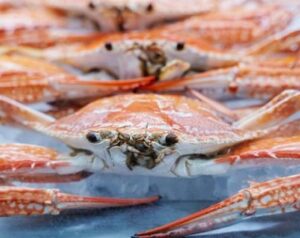
Australian Seafood industry on ice
A great Australian tradition is seafood at Christmas time. We have some of the best fresh seafood in the world. The need for the reminder is becoming more important. Over the past few decades Australia has closed massive amounts of oceans and rivers reducing the amount of seafood available to all Australians. The result of all these fishing bans has not been to save the environment, we have instead just imported seafood from other countries with poorer environmental practices. We instead import most of our seafood from China, Thailand and Vietnam who all extract fish from their oceans much more intensively than we do. The numbers are shocking. >click to read< 08:04
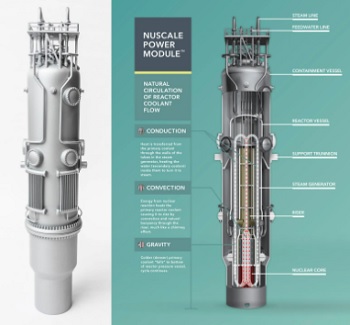
Small Modular Reaction: Europe’s Wind & Solar Disaster Paves Way For New Nuclear Age
Europe’s energy disaster proves, beyond doubt, that wind and solar are an abject failure, leaving the way clear for nuclear power and any other power generation source that can dish it up, on demand. With numerous operators seeking or obtaining licences to build Small Modular Reactors, and numerous countries signing up to have them, SMRs are here to stay. Nuclear power is safe, affordable, reliable and the perfect antidote to arguments about human-generated carbon dioxide gas posing a threat to life on Earth – because it doesn’t generate any, while generating power on demand, irrespective of the weather, unlike inherently unreliable wind and solar. >click to read< 11:58
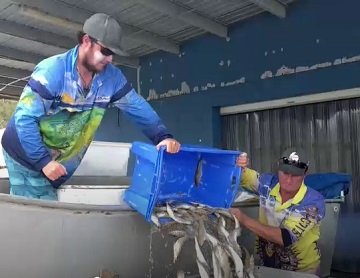
Great Sandy Marine Park fisheries could shut down and seafood prices increase
Commercial fishing is the only job Brett Fuchs has ever known, but the Hervey Bay fisher says plans to increase no-fish zones in the Great Sandy Marine Park will be enough to sink his business, as retailers predict seafood lovers will wear the cost of limited supplies. The Queensland government has proposed to expand the green zone by almost 9 per cent in the 6,000-square-kilometre marine park that stretches from Baffle Creek to Double Island Point. Commercial fishers would be forced to remove large gill nets and ring nets from the water. “There’s nothing left for us,” Mr Fuchs said. >click to read< 11:12
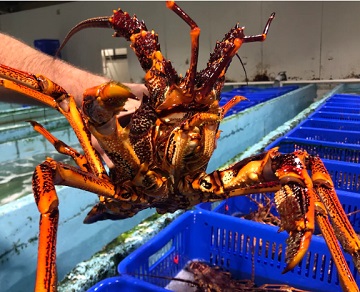
Signs China will discuss lifting trade ban, but Australian lobster fishers say diversification crucial
Trade Minister Don Farrell is yet to meet his Chinese counterpart but says ambassador Xiao Qian has indicated his government is “prepared to have these discussions”. “My job now is to convince China to change its view,” Mr Farrell said. Gordon Lewis owns two fishing boats in Port Macdonnell, South Australia, one of the country’s largest rock lobster fisheries. He said after fishing for the first few days of the season, he pulled his boats out for more than two weeks because volatile prices had made it unaffordable. “Everyone is struggling,” he said. With China no longer taking the majority of the catch, oversupply in the domestic market led to a price drop. >click to read< 09:47
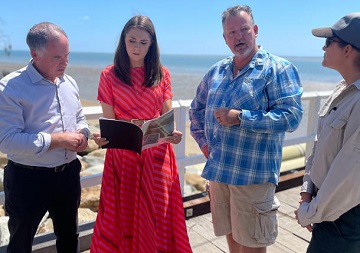
Plans to increase no-fish zones in Great Sandy Marine Park worry Queensland seafood industry
It is considered a win for conservationists and recreational fishers, but seafood lovers and commercial fisheries will pay the price for proposed changes to one of Queensland’s greatest marine parks, an industry body says. The state government has released the draft for the new Great Sandy Marine Park Zoning Plan, which would see green zones increase from 3.9 per cent to 12.8 per cent. But the Queensland Seafood Industry Association said the expansion of no-fish zones had little regard for local fishers and felt the government had ignored their concerns. “The plan will have a massive impact on the supply of fresh fish … 95 per cent of the net fisheries will be shut down in the Great Sandy Marine Park,” CEO Eric Perez said in a statement. >click to read< 13:07
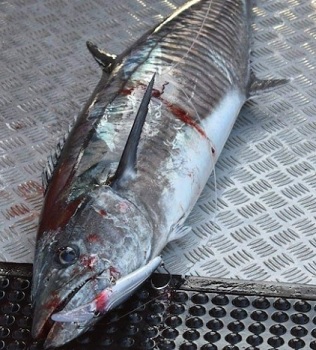
Spanish mackerel catch quota reduction ‘catastrophic’ for north Queensland fishers, industry says
New quotas that will dramatically reduce the number of Spanish mackerel commercial fishers can catch will “devastate” the industry, according to north Queensland fishers. The Queensland government has unveiled a suite of changes that slash the total catch quota for the state from 570 tonnes to 165 tonnes for commercial fishers. Chloe Bauer’s family business, Bowen Fisherman Seafood Company, has been supplying Spanish mackerel to restaurants up and down the Queensland coast for 40 years. She said the new quotas would “devastate” the industry. >click to read< 11:22
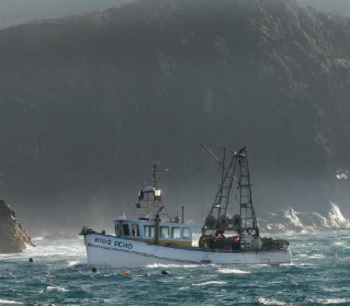
Rock lobster back on the menu
New Zealand’s rock lobster industry is catching up on a slow year thanks to the end of a Chinese lockdown and the conclusion of an unlucky spiritual festival. Shanghai is one of New Zealand’s biggest lobster importers, but the city was locked down from March to June. Fiordland Lobsters sales and marketing general manager Andrew Harvey said it had taken time for the industry to get back up to speed. That was combined with Ghost Month, a time dedicated to the spirits of the dead which spanned from late July to August. Australia banned exports of lobster to China in 2020, which had also increased the New Zealand share of the market and helped it through some of the slow patches. >click to read< 08:47
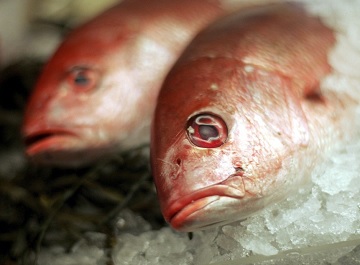
Catch Shares Enable Wealthy Landlords to Gobble Up Local Fisheries
A recent investigative report has reignited public discussion over catch shares, a controversial approach to fisheries management that privatizes the rights to fish. The investigation exposed how Blue Harvest Fisheries, owned by a billionaire Dutch family, became the largest holder of commercial fishing rights in New England, benefiting from lax antitrust regulations and pilfering profits from the local fishermen who work under them. As a commercial fisherman in Mississippi, I know these dynamics go well beyond New England. Here in the Gulf of Mexico, private equity firms and other large investors have come in and gobbled up the rights to fish, driving up the cost of fishing access and making it prohibitively expensive for fishermen like me to harvest fish in our own backyards. >click to read< 07:55
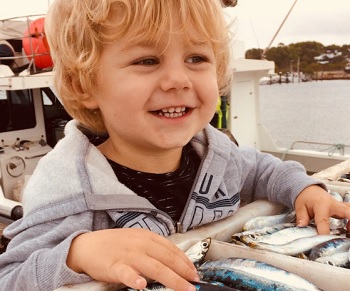
Sardine fisherman hopes changing consumer attitudes will get his catch on dinner plates
David Gray wants his fish on dinner plates. The Esperance commercial angler has spent years catching and selling sardines nationwide for bait. But a growing interest in locally sourced seafood has created new opportunities. He now has the human consumption market in his sights. The majority of Australia’s edible seafood is imported, predominantly from Asia. But Phil Clark, co-owner of WA company Fins Seafood, said supply headaches stemming from the pandemic had “put the magnifying glass” on where the country sourced its fish. >click to read< 11:13
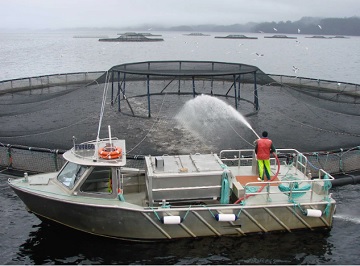
Tassal recommends shareholders accept $1.1 billion takeover bid from Canadian seafood giant Cooke
The last remaining Australian-owned major salmon producer looks set to go to foreign hands, after Canadian aquaculture company Cooke upped its offer for Tassal. Tassal told the Australian Securities Exchange that it has recommended shareholders accept Cooke’s latest $5.23 per share bid, which values the company at $1.1 billion. Cooke has attempted to purchase Tassal for months, lodging three unsuccessful takeover bids, with the latest in June valued at $4.85 per share. The potential acquisition of Tassal follows foreign takeovers of Australia’s other two major salmon companies. New Zealand seafood giant Sealord purchased Petuna in 2020, while Brazilian-owned JBS completed its takeover of Huon Aquaculture last year. >click to read< 10:09

Australia: Commercial fishers eyeing compensation as six offshore wind farm zones get green light
Trawl fishers have ramped up calls for compensation following the federal government’s announcement that it will establish six offshore wind energy zones. Waters off Gippsland, Portland, the Hunter Valley, Illawarra, northern Tasmania, Perth and Bunbury have been earmarked for development. But fishers are concerned they will be excluded from the sections of the ocean where the turbines are built. The most progressed wind farm proposal is the Star of the South project in Gippsland. “The problem we have is that the federal government has already given out rights … to go commercial fishing. >click to read< 07:59
Australian offshore wind farms get green light in landmark announcement – >click to read<
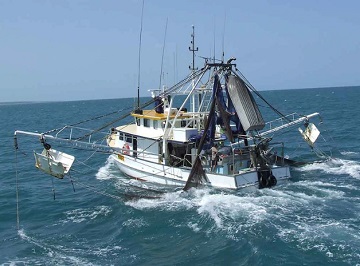
Prawn fishers suffer ‘worst season yet’ as high fuel prices bite
Prawn trawler operator Ed Morrison believes farming comes in peaks and troughs, but this year it’s hurting more than usual. The North Queensland-based businessman runs prawn trawlers in the Torres Strait. His prawns are sold throughout Australia, but he says this year has been one of the worst seasons he has seen. However, retailers say any hike in prices would not help the situation as consumers are not prepared to pay more for non-essential produce. The eye-watering cost of fuel and a global supply crunch has forced operators like Mr Morrison to leave vessels in port instead of putting them out to fish during off-peak periods. The situation has left trawlers considering whether or not their operations are commercially viable. >click to read< 10:29
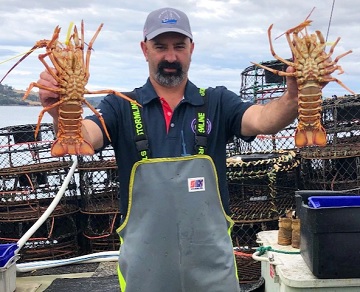
Fishers struggle as lobster ‘nearly as cheap as chocolate’
A dramatic collapse in export markets has flooded Australia with large quantities of cheap lobsters selling for as little as $35 a kilogram. At that price, fishers struggle to break even and processors are not getting enough orders to chew through the oversupply of fish, with one describing the price as “nearly as cheap as chocolate”. “I’m hearing fishermen struggling to maintain deckhands because they’re not earning enough money, fishermen talking about having to get a second job,” Mr Blake said. “It’s been very challenging.” Fishers used to sell lobsters into China for around $100 per kilogram but the industry has been locked out of that market since the outbreak of covid. >click to read< 08:04
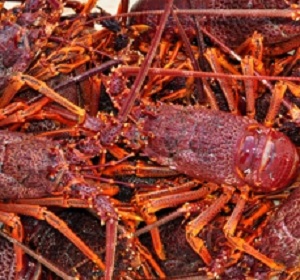
Licence fee reduction among government’s lobster support
The state government is set to provide relief to the state’s commercial rock lobster industry including a 50 per cent reduction in licence fees and an independent review into cost recovery. The industry has continued to feel the effects of ongoing trade sanctions imposed by China, which had been its biggest market, on top of a decline in domestic markets due to COVID-19. This includes a 50 per cent reduction in commercial rock lobster licence fees for the next year, which the government says will save the industry nearly $2.6 million in 2022-23 according to current Rock Lobster Cost Recovery Statements for 2021-22. >click to read< 09:45
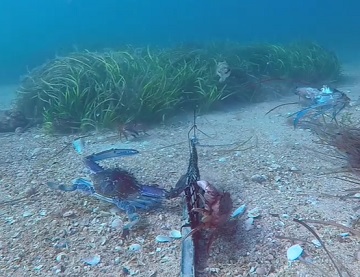
Crab cam video reveals a ‘hectic’ underwater world
An octopus attacking a blue swimmer crab over bait, a squid changing colours as it tries to steal the lot; these are some of the scenes being captured off Adelaide’s beaches to create an unlikely social media hit. Kayak fisher Andy Burnell has been attaching a camera to bait that he places on the ocean floor,,, “What amazed me was the grid pattern the squid displays as it first comes in. The “hectic” nature of blue swimmer crabs too has been startling, in particular their aggressive nature as they attack the camera and jostle for bait, having been swept into a frenzy. “Once they smell the bait in the water, they just come flying in,” >click to read< 08:06
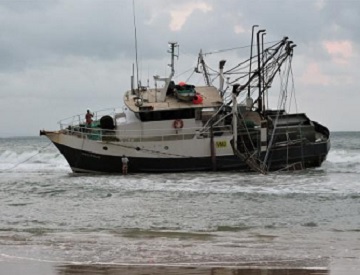
Huge relief for owners as grounded fishing trawler is rescued
In scenes reminiscent of the mighty Cherry Venture, the fishing trawler F/V Proteus, out of Mooloolaba, ran aground this week just past middle rock at the Coloured Sands. While the owner of the trawler declined to comment, a local businessman said, “The scallop season has just opened and it’s a mad rush to get first dibs on the scallops and they have been putting some good hours, and it slipped anchor and they were woken up when it hit the sand”. photos, >click to read< 21:12
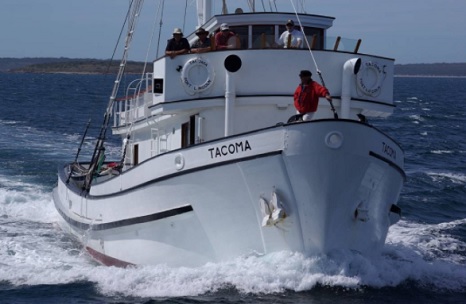
Tacoma’s 70 years: A personal perspective
Last month MFV Almonta sank on its mooring for a second time. This once proud member of the Port Lincoln tuna fleet now sits forlorn, half submerged in Porter Bay. It seems likely another part of the 60s tuna fleet is to be lost. I am guessing funds are short and too few people care enough to keep her afloat. This gives me pause for thought. A short distance away in the Marina sits the MFV Tacoma – afloat, fully preserved, debt free, self-funded and heritage listed. >click to read< 07:36
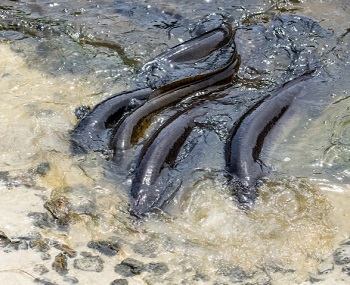
Eels – They may be Australia’s most hardcore animal
They may be no match for saltwater crocs or great white sharks, but for their size, our freshwater eels are surprisingly hardcore. These slippery fish can travel over land, take down serious prey, and climb walls, all without any freaking legs! Their shape-shifting rivals that of insects such as butterflies, moths and cicadas. And eels undertake one of the most epic migrations known within Australian waters, but to this day, their breeding grounds remain a mystery. Lurking in the muddy bottom of a river or dam is only part of an eel’s life. It’s like the Clark Kent bit. The rest is the stuff of fishy superheroes. photos, >click to read< with attached eel articles! 19:04
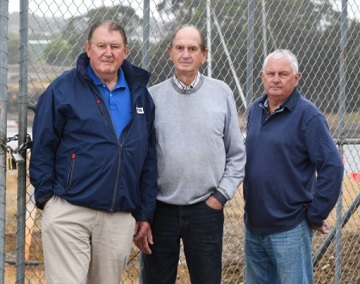
Commercial fishermen call for a fishing boat wharf accessible to the community
Commercial fishing operators say they’re “getting pushed out” of Devonport with nowhere to dock their boats after the last available berth is taken away to make way for King Island supply ship John Duigan. That’s according to Coastal fishing industry icons Peter Rockliff and Stuart Richey, who say TasPorts sent an email to Mr Richey two days ago informing of the loss of the only berth in Devonport they can use. “We berth our fishing boats where there’s a gap, and soon we won’t have anywhere,” Mr Rockliff said. >click to read< 08:40
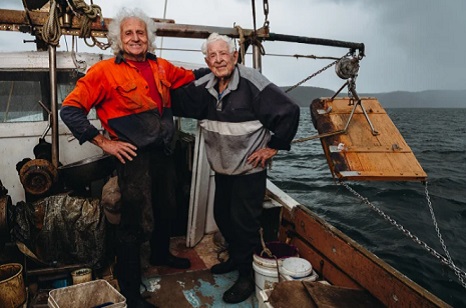
‘Not work, it’s a passion’: Commercial fisherman Santo La Macchia still hooked at 101
Australia’s oldest commercial fisherman, and his son, “Young Bobbie”, planned to have left their mooring in Avalon’s Careel Bay about 1pm on Monday, pointing their 70-year-old trawler Joyce towards the prime squid fishing waters off Patonga on the Central Coast.,, “We like to do the afternoon shift,” explains “Young Bobbie” (to distinguish him from Santo’s late father who started the fishing dynasty in 1924). “Young Bobbie” joined his father on Joyce in 1972, and now trawler, licence and trading company are in his name. So which of them is skipper? “He is,” says Santo, pointing at his son. “But sometimes, when he does something wrong, I’m the skipper.” >click to read< 07:50
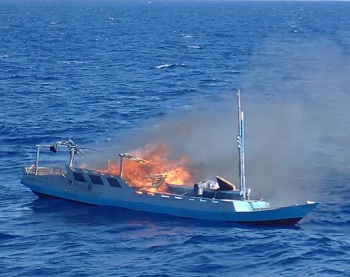
Boats burnt, seafood seized in crackdown on illegal foreign fishing in Australian waters
Authorities have swung into action in Australia’s northern waters, destroying illegal Indonesian boats and seizing hundreds of kilograms of fishing gear and seafood. The Australian Border Force has released photographs showing the small colourful boats burning at sea in the wake of the three-day operation near the Rowley Shoals Marine Park off the northern Western Australian coast. The actions come after local tour operators raised the alarm about dozens of foreign boats in the area, saying they feared piracy during recent trips. >click to read< 13:19






